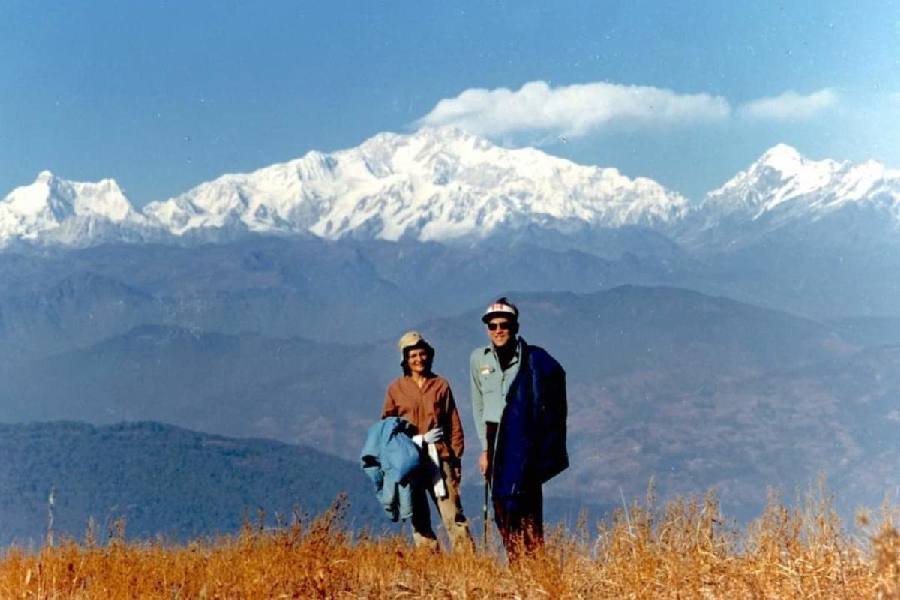Elections are around the corner and there is much ado about the “North Bengal vote”. For many in India, North Bengal means Darjeeling and Darjeeling means Gorkhas. Gross oversimplification apart, it must be known that for over three centuries, kings and chieftains from Nepal, Sikkim, Tibet, Bhutan and also the generals of British India have fought for the small but strategically important tract of Darjeeling.
Rulers changed, political boundaries shifted, policies and opportunities turned Darjeeling into a melting pot. Apart from the predominant Indian Gorkhas, Bhutias and Lepchas, Darjeeling is home to many.
Shalla Plant
The elegant Shalla Plant, who taught in Loreto Convent in Darjeeling for nearly 40 years and now runs a homestay called English Cottage on Darjeeling’s Mall Road, traces her roots to Afghan royalty.
Plant’s great-grandfather Mohammad Ayub Khan, the Emir of Afghanistan, had led the Afghan troops during the Second Anglo-Afghan War and defeated the British Indian Army at the Battle of Maiwand in 1880. Ayub Khan belonged to the Barakzai dynasty and is also known as The Victor of Maiwand.
The British, however, defeated Ayub Khan in the Battle of Kandahar a few months later, and deposed and exiled him to British India. Ayub Khan managed to escape to Persia (present-day Iran) and following negotiations with the British, returned to India in 1888 and lived in Lahore until his death in 1914.
The sixth son of Ayub Khan, Muhammad Sarwar Khan, chose to remain in India. Plant’s father Akbar Khan was born to Sarwar Khan in Allahabad. “I spent my early days in Shillong before coming to Kalimpong at the age of 10,” says Plant. Her father was a tea garden manager in Assam.
Austen Plant
Shalla completed her college from Loreto College (now christened Southfield College) in Darjeeling and it is here that she met her husband Austen Plant, an architect. Austen is the designer of the beautiful Swiss cottages in Mirik, the trekkers hut in Sandakphu — the highest point in Bengal at 11,900 feet — and its surrounding areas, and was one of the last British passport holders in Darjeeling who was recalcitrant to the idea of settling in England.
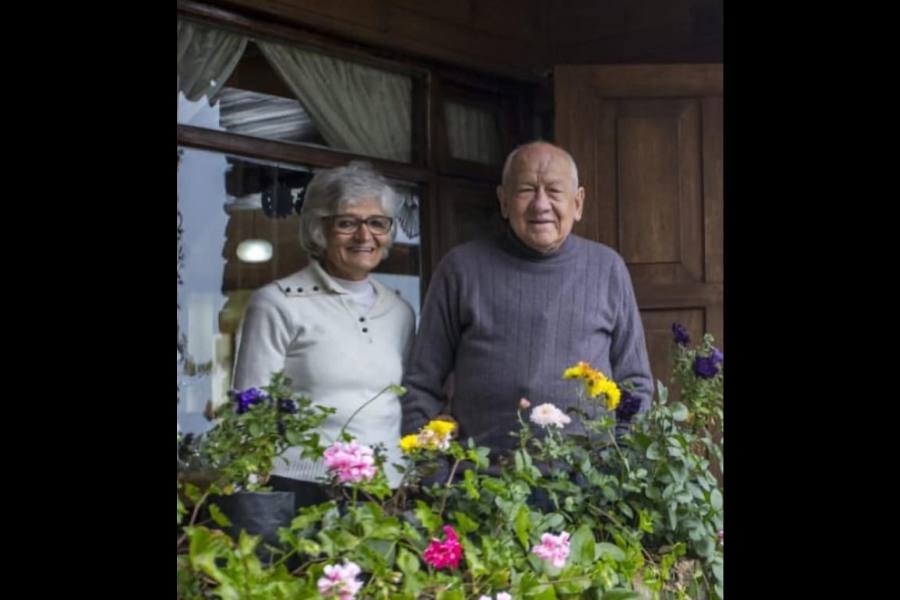
Mr and Mrs Plant of Darjeeling Sourced by The Telegraph
He passed away in 2020. Says Shalla, “Austen was born in Burma. His father was an engineer and oversaw road construction there.” During World War II, Austen’s family moved to Darjeeling.
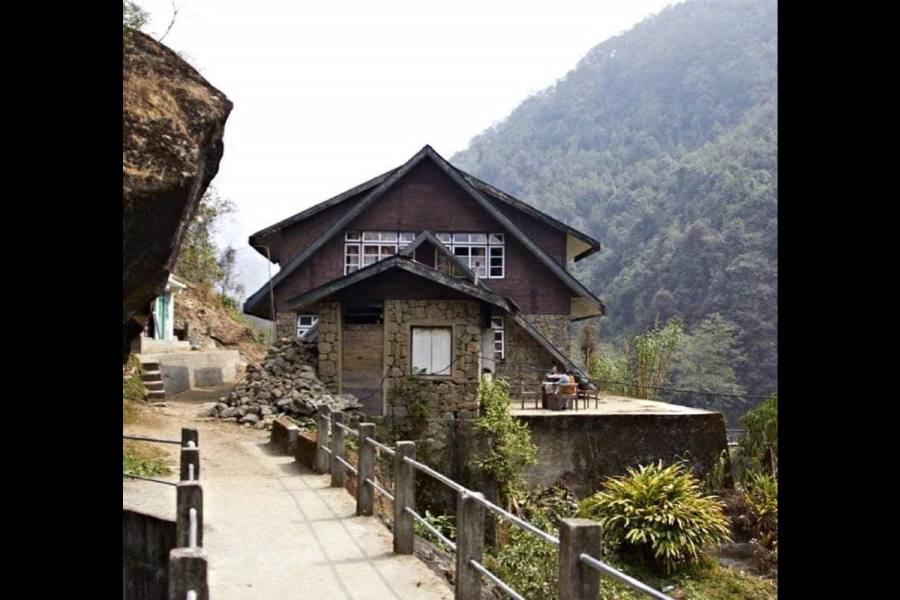
Sourced by The Telegraph
The Dalai Lama’s brother
Gyalo Thondup, 94, the trusted interlocutor for his brother His Holiness the Dalai Lama with foreign leaders — including Jawaharlal Nehru, Chiang Kai-shek, Zhou Enlai and Deng Xiaoping — learnt to make noodles from his mother at the age of five at his native village Taktser in Tibet.
Thondup fled Tibet in 1952, and played a pivotal role in establishing links between the exiled government of Tibet and the rest of the world, but he never gave up making noodles.
“I bought this three-acre land in Kalimpong in 1963 for a sum of Rs 7,200 and started the factory in 1967. I have been making noodles because this is all I know,” says Thondup.
He named his premises — he resides at the 8th Mile in Kalimpong — Taktser House after his village in Tibet. He has written a book with the American writer and researcher Anne F. Thurston titled: The Noodle Maker of Kalimpong — The Untold Story of My Struggle for Tibet. He says, “I did not suggest the name, the publishers did. I have no complaints but I would have titled it Blood and Tears.”
Thondup was sent to Beijing for his primary education and it is there that he learnt Chinese. “I learnt English during my stay in Darjeeling,” he says.
After the Chinese entered Tibet in 1951, Thondup realised that they would do no good for the country. “I took my mother and one of my brothers into confidence and decided to establish a link with Nehru through an Indian official, S. Sinha, in Lhasa,” he reminisces. “We did not tell His Holiness.”
“The Chinese wanted me to attend a Chinese Youth Congress in Beijing and then be a part of a youth delegate to Vienna, Austria. I promised Mao I would attend the conference after visiting south Tibet,” he continues.
Once in south Tibet, Thondup fled the country and entered Tawang in Arunachal Pradesh after a 17-day trek. In India, he established links with world leaders.
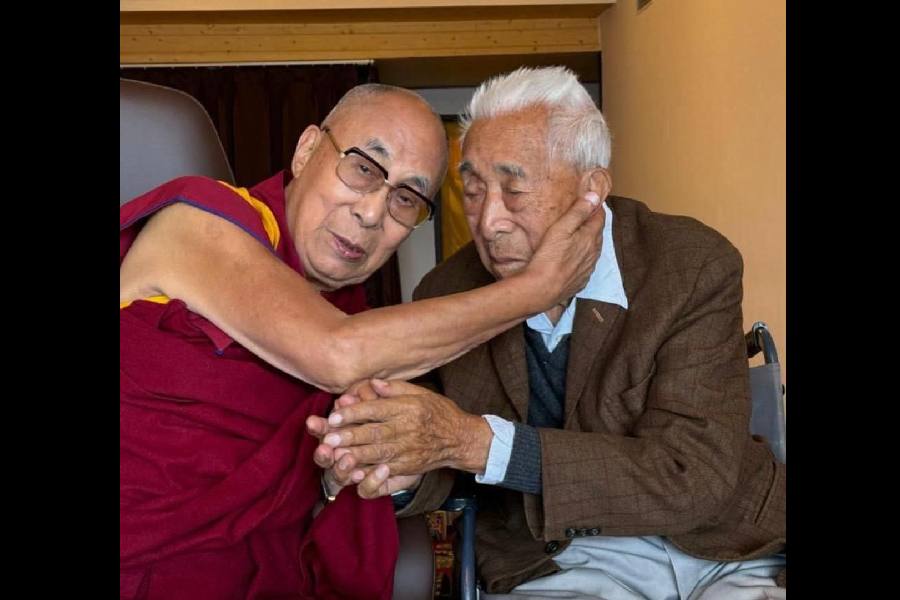
The Dalai Lama with his brother Gyalo Thondup Sourced by The Telegraph
When the Dalai Lama fled Tibet in 1959, Thondup was not absolutely sure of the details. “Later, I got information that he was safe in south Tibet. Then I went to meet Nehru to seek political asylum for His Holiness,” says Thondup. He adds, “I still remember, Nehru did not say ‘yes’ or ‘no’. He looked at me and after a while said in a very loud voice — ‘of course’.”
Cantonese owner of American Dry Cleaners
Ying Chung Kwok is a Chinese whose best friends in Darjeeling are Tibetans. “My dad Pin Woon Kwok sailed to Calcutta from Canton in 1931 to avoid the invading Japanese,” he says.
Canton is now known as Guangzhou. In Calcutta, Pin Woon, who hailed from a well-to-do family, started a garage business. He also met his wife Pasang Bhutia there; her family had migrated from Kham province in Tibet around the same time.
The garage business did not take off as expected. Says Ying, “My dad, being Chinese, faced problems communicating. With business failing to pick up, they decided to move north to Siliguri in the 1950s.”
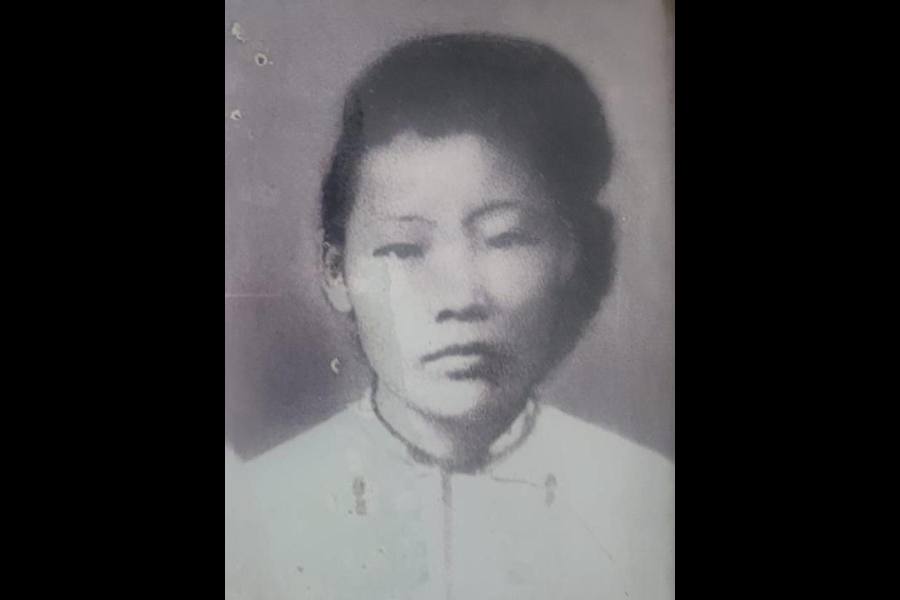
Pasang Bhutia, wife of Pin Woon, owner of American Dry Cleaners, Darjeeling.
Things did not improve in Siliguri either. Apart from communication issues, the place was infested with mosquitoes and they dreaded malaria. They soon decided to move further north to Darjeeling.
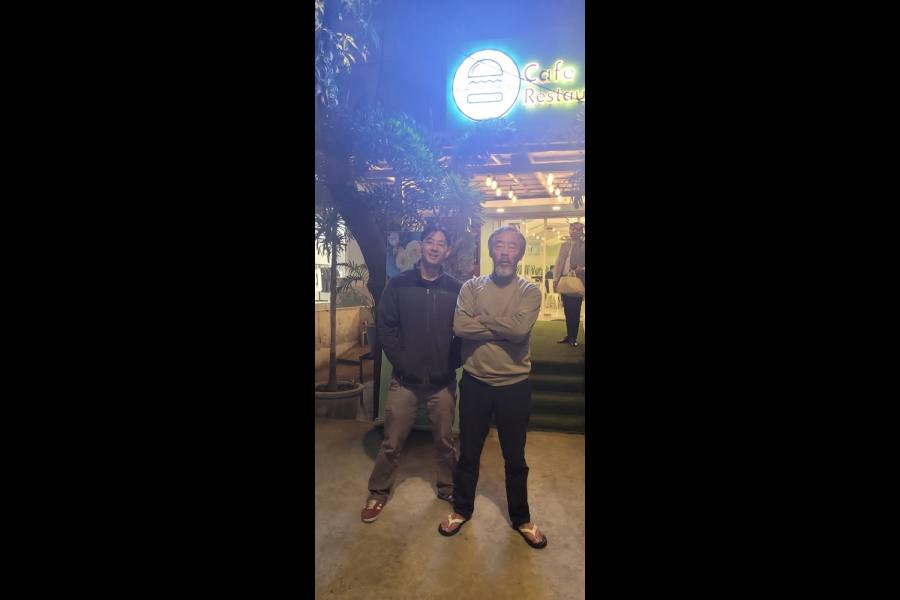
Kelvin Kwok (L) with dad Ying Chung Kwok, owner of American Dry Cleaners, Darjeeling.
Darjeeling and Kalimpong had significant Chinese and Tibetan populations because of the booming trade between Tibet and India through Jelep La and Nathu La. In Darjeeling, Pin Woon started the American Dry Cleaners and also taught Chinese to Tibetans. “Business was good. In fact, most of the expedition clothes of Tenzing Norgay Sherpa would come to our dry cleaners,” says Ying.
The family also started Lotus, a Chinese restaurant, in 1975. Ying, who was born in Darjeeling in 1961, now owns a hotel, while his son Ying Loong Kelvin Kwok owns the café chain Burger Cartel in Darjeeling and Siliguri.
The Jhas of Keventer’s
Girish Chandra Jha belonged to a landed family in Begusarai in Bihar. When he was fighting Germans in northern Africa during World War II, little did he imagine that he would one day settle down with a German wife in Darjeeling.
Girish joined the army under the British during the war and saw action in Africa. He was a prisoner-of-war of the Italian army. After the war, he was posted in Lebong, Darjeeling, but his tryst with Germans did not end.
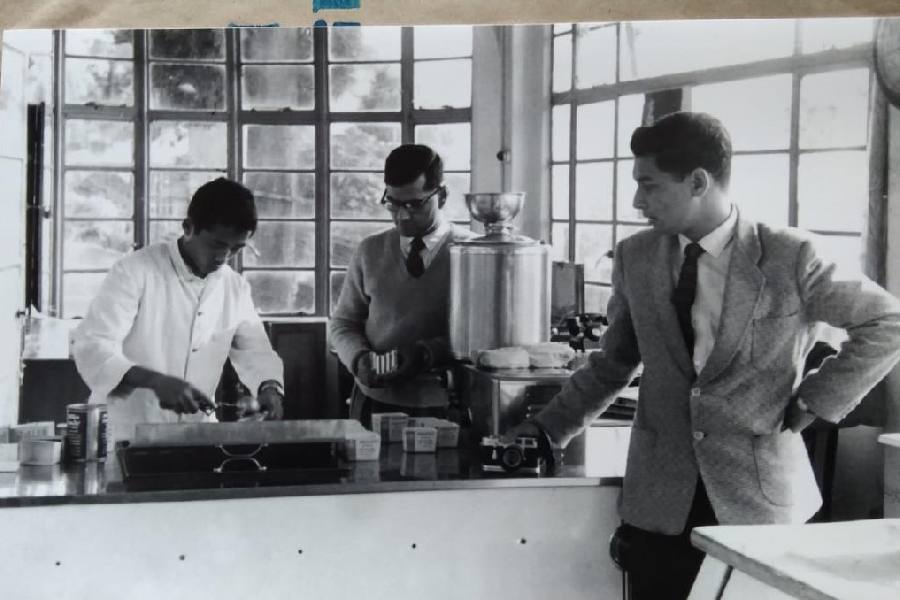
“My grandmother Rita Jha had a German father and a Sikkimese mother and they had been living in Lebong for a long time,” says Rahul Jha, who is Girish’s grandson.
During his stay at Lebong, Girish came in touch with E.G. Bee, director of Edward Keventer (P) Ltd. When Bee died in 1966, his family sold the shares to Girish and subsequently he bought the entire business from the other partners.
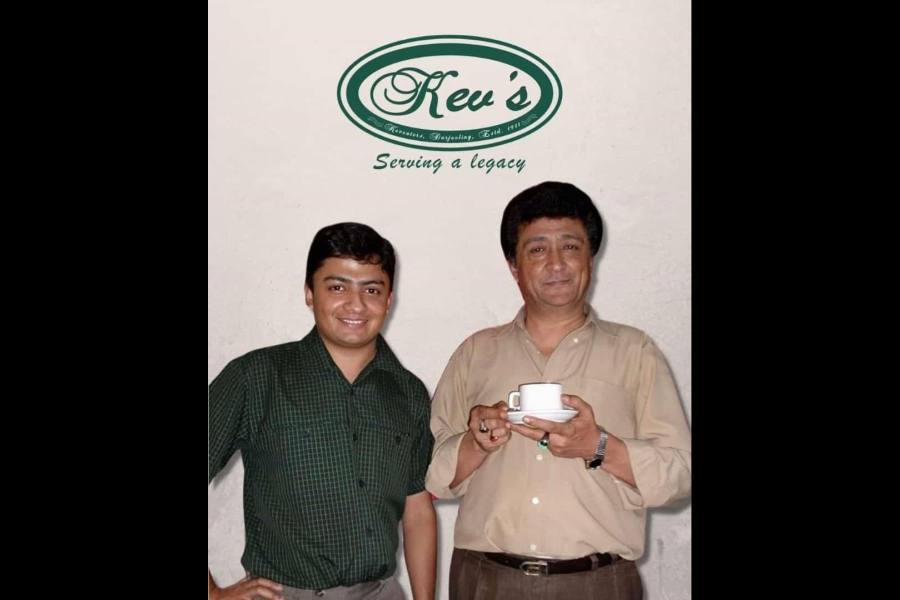
Rahul with dad Rabin Jha
Girish’s son Robin, who studied at Goethals Memorial School in Kurseong and Birla Institute of Technology, Mesra, in Ranchi, had to return to Darjeeling to take charge of Keventer’s when his father died in 1986.
Rahul, who did his MBA from the Institute of Rural Management in Anand, Gujarat, also returned to his family business after stints with multinationals. Apart from Keventer’s, the family now owns two hotels in Darjeeling.
“Darjeeling is where I have always felt that I belong. I cannot think of a better place to call my own,” says Rahul.

